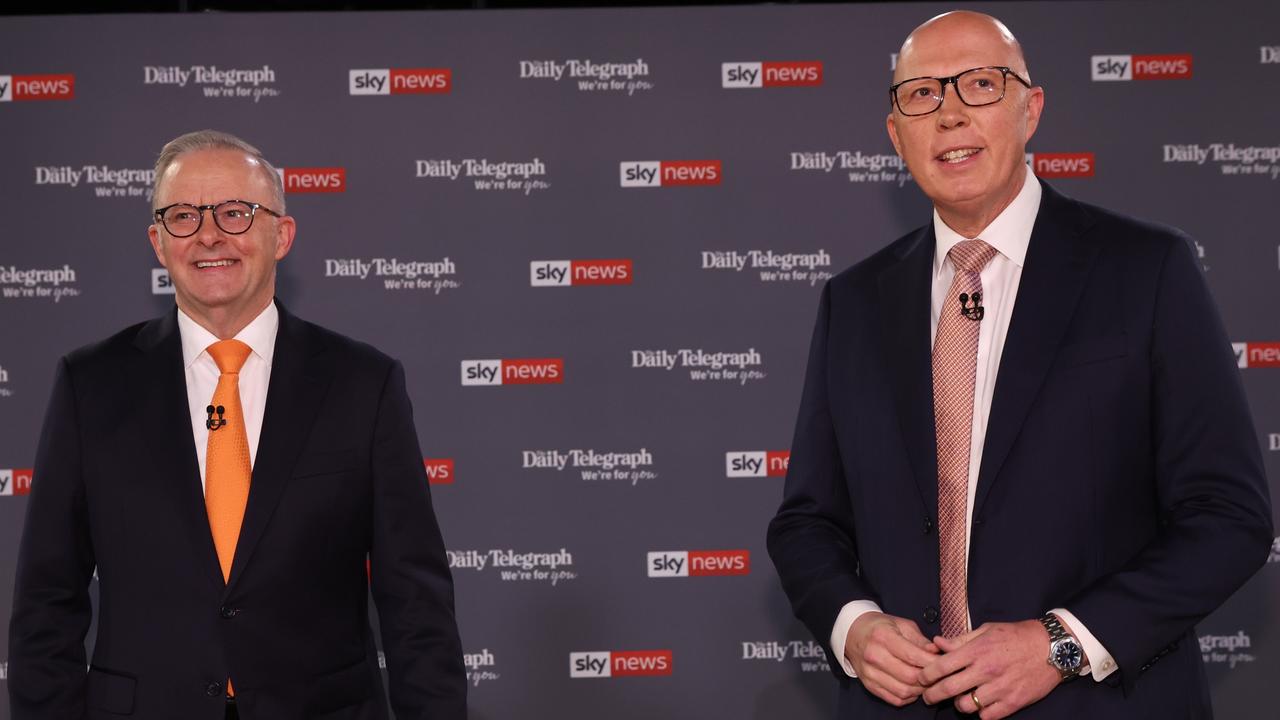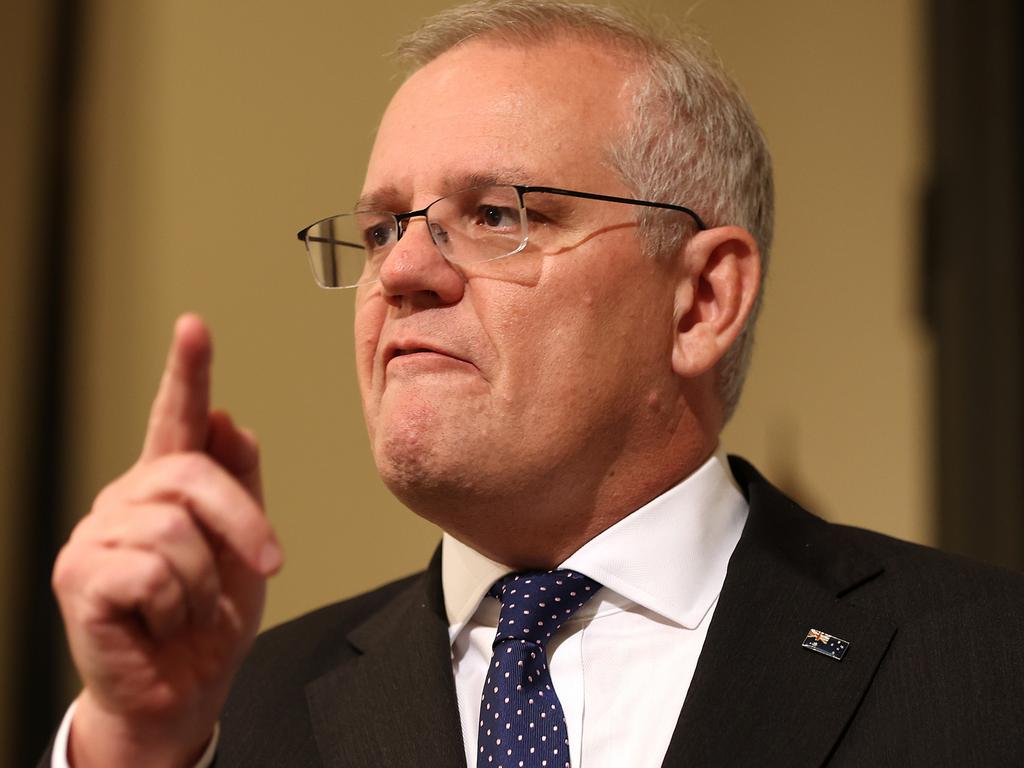Opinion: Our elections becoming more Americanised – but not how you think
Australia’s elections have become more Americanised, but not in the way you might think, writes Paul Williams. VOTE IN OUR POLL

Opinion
Don't miss out on the headlines from Opinion. Followed categories will be added to My News.
Australians say they don’t want to go down the path of American politics but, like it or not, we inevitably are.
I don’t mean our leaders are becoming Trump clones, although Clive Palmer’s Trumpet of Patriots and Opposition Leader Peter Dutton’s attack on “wokeness” come pretty close.
No, I’m talking about the “presidentialisation” of Australian politics, and the premium Australia’s swinging and undecided voters now place on leadership (and the personal qualities those leaders hold) when making their vote choice.
Forget about issues and policies, for too long our leaders have embodied entire parties and belief systems. Is it fair, for example, that Bill Shorten’s unpopularity should have defined Labor in 2019? Or Scott Morrison the Liberals in 2022? No, but it happened.
How many times did you say, “I’m voting for ScoMo rather than the LNP”? We say “familiarity breeds contempt”, and the familiarity we today have with our political leaders through television and social media – invading our homes daily like disdained distant relatives – has indeed bred scorn.
I’ve even heard intelligent folk say they couldn’t vote for John Howard because of his eyebrows, or for Kim Beazley because of his weight, or for Julia Gillard because of her earlobes. Like it or lump it, leaders’ personal qualities now determine which party wins in Australia.
Again aping the US model, that’s why we’ve had since the 1980s televised leadership debates between two candidates found on the ballot papers of just a tiny number of Australians.
This year, only about 200,000 voters in Grayndler in inner Sydney and in Dickson north of Brisbane will directly vote for Albo or Dutton. But that doesn’t prevent the rest of us from comparing the two like competing brands of breakfast cereal.
It’s a fallacy based on the belief that, in Australia, the prime minister is the nation’s boss. But he or she is not. In Westminster systems, cabinet is the boss, with executive decisions taken and defended collectively by a team of 18 to 20 ministers, with no minister theoretically more important than the other.
Why, then, don’t we also look at cabinets and shadow cabinets when making our vote choice? Shouldn’t we also compare the qualities of treasury, foreign affairs and education spokespersons? Do we even know who these people are?
Sadly, this week’s leaders’ debate was a tepid affair between two blokes spouting well-rehearsed lines. The 100 uncommitted audience members marked Albanese the winner – 44 votes to Dutton’s 35, with 21 undecided – but did the exercise move any votes in the real world?
Probably not. Albanese in this week’s Newspoll leads Dutton as Australia’s preferred prime minister by eight points, 48 to 40. Worryingly for the Opposition, Dutton has been preferred prime minister in just one of the past 16 polls. More worrying for each party, the approval ratings for both leaders have long been in negative territory. This week, Albo is on minus 11, and Dutton on minus 17.
But does that make them bad leaders? If so, what makes a good one?
Clearly, it’s more than the ability to gift household goodies during challenging economic times.

Despite Albanese’s government delivering tax cuts, electricity rebates, increased housing, higher minimum wages, record jobs growth, cheaper medicines, free TAFE places and increased bulk-billing while overseeing a sharp decline in inflation, more Australians think Albo is a poor PM than a good one.
What, then, are we looking for in a prime minister?
Is it the reassuring authority of a Bob Menzies or a John Howard? Or is it the cheery larrikinism of a Bob Hawke? Maybe it’s the relaxed and informal “common touch” of a Ben Chifley, Harold Holt or John Gorton, or perhaps the nerdy workaholic in a Kevin Rudd? Could it be the genteel manners of a Malcolm Fraser, or may even the sober stoicism of a John Curtin?
Maybe it’s easier to define what we don’t like in a prime minister. Australians punished the bumbling of Billy McMahon, for example, just as much they did the smirking of Scott Morrison and the arrogance of Stanley Bruce and Gough Whitlam. Anecdotally, I hear voters complain of an allegedly mumbling, meandering Albanese, and the dour sourness of a what seems to be a humourless Peter Dutton.
With three weeks till polling day, resist the temptation to judge our political books by their rather dull covers. Instead, take the time to learn each party’s policies and achievements before casting your vote.
You get only one choice every three years. Make it a wise one.
Paul Williams is an associate professor at Griffith University
More Coverage
Originally published as Opinion: Our elections becoming more Americanised – but not how you think








